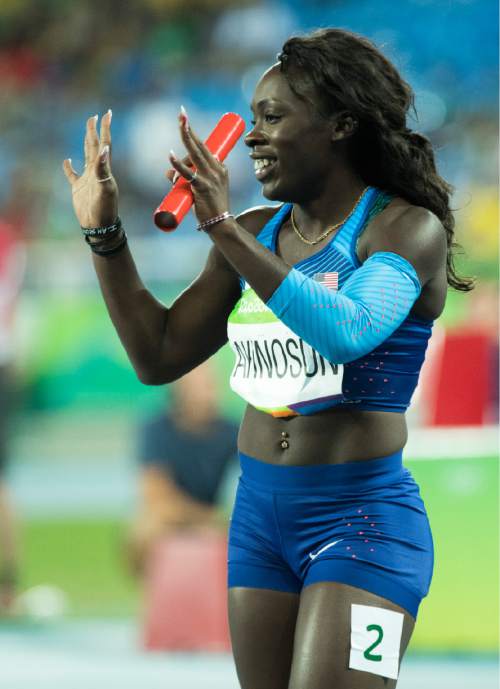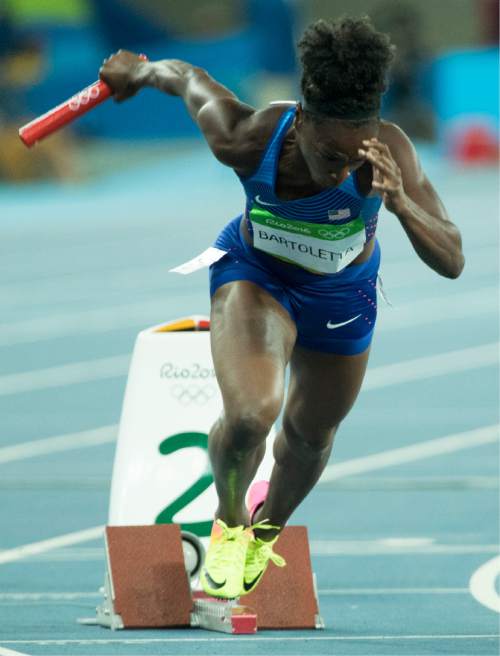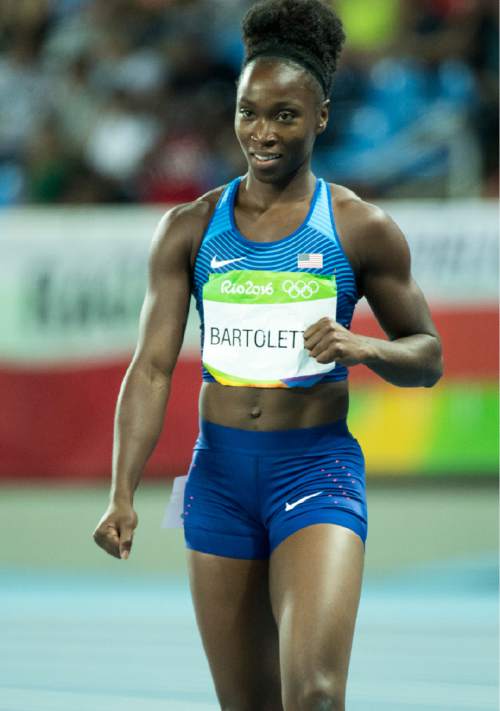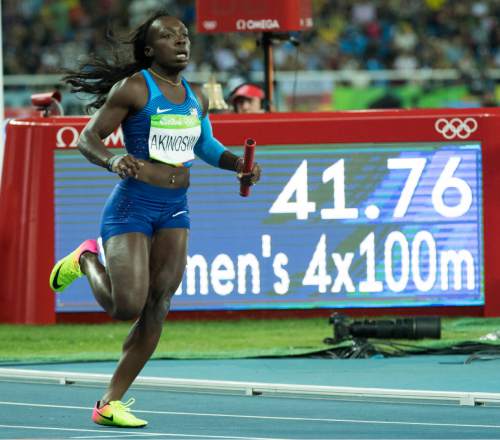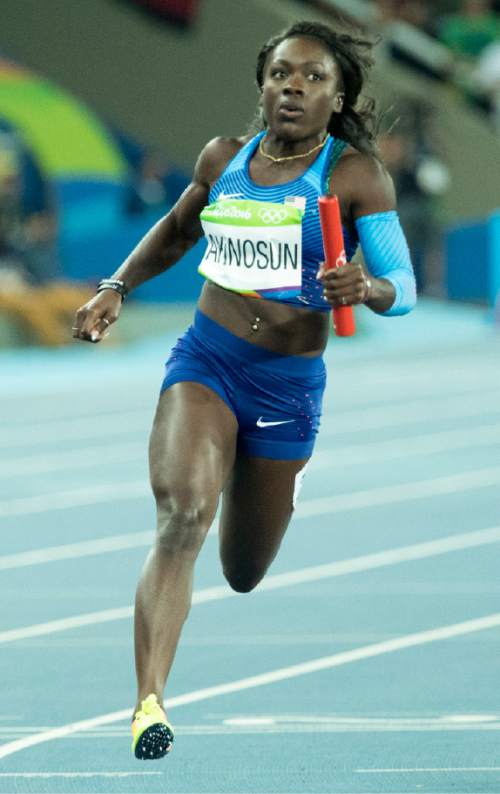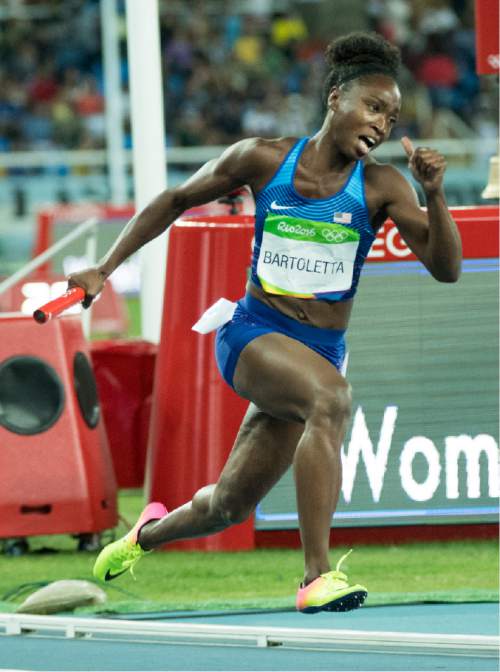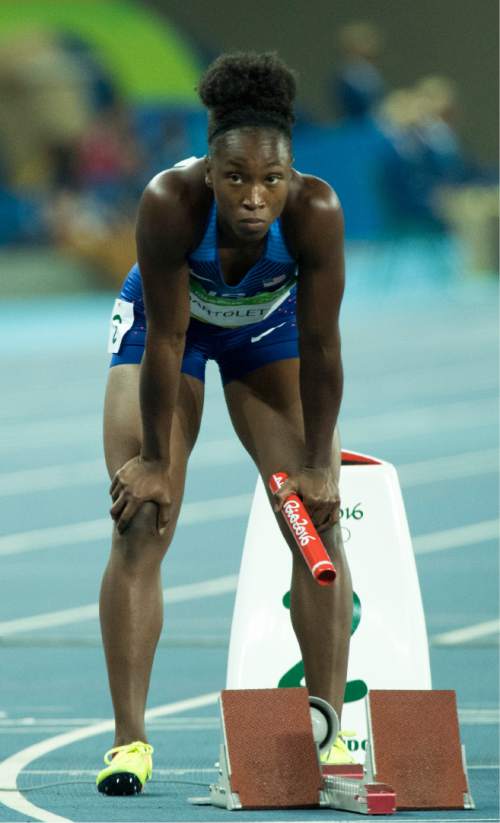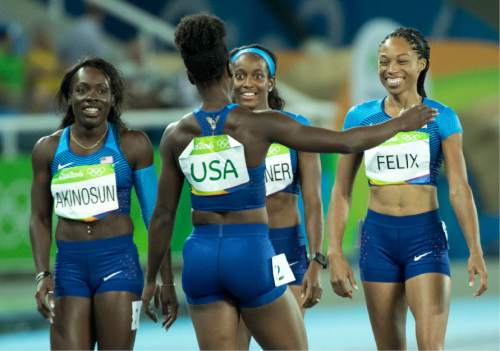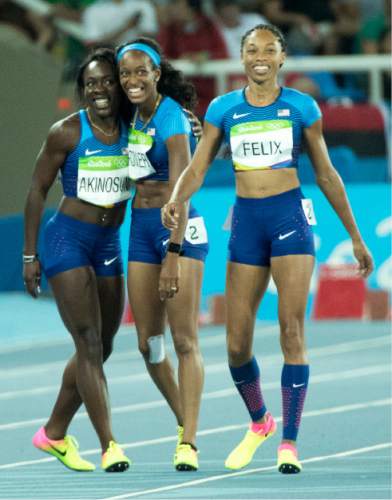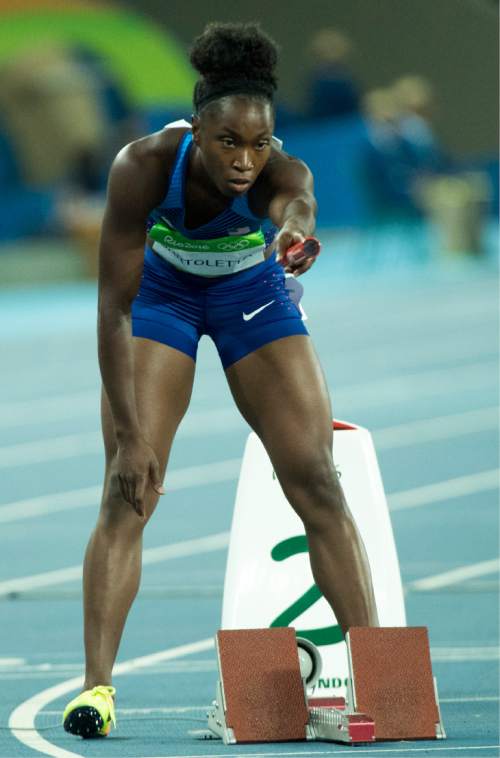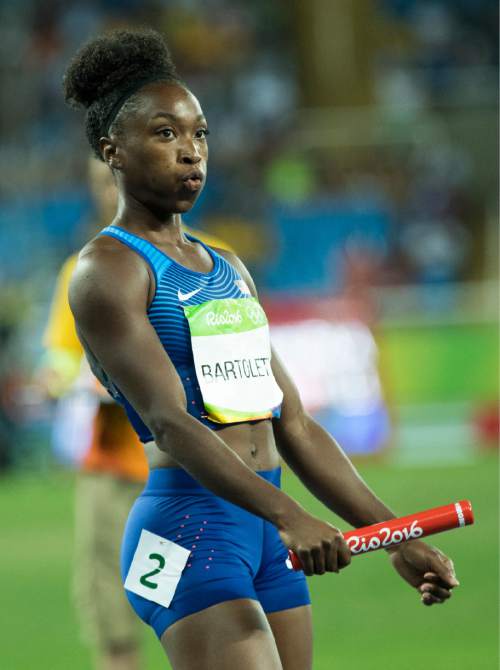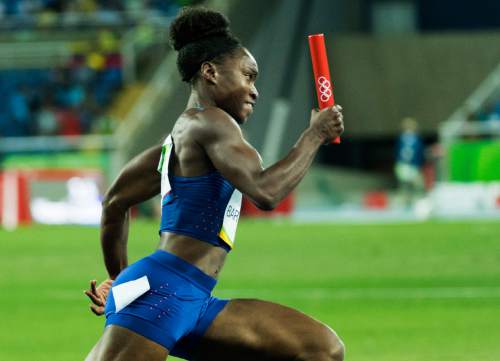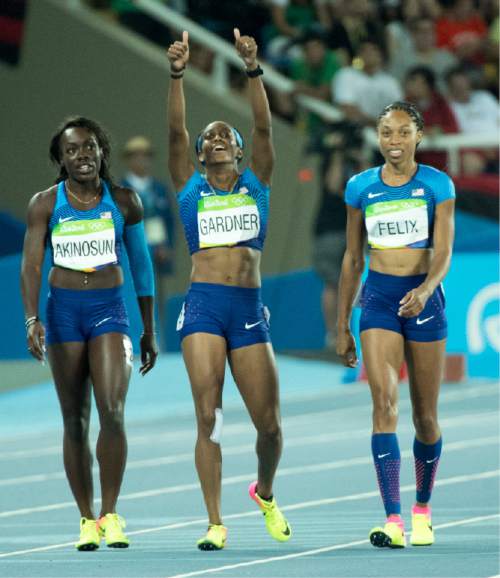This is an archived article that was published on sltrib.com in 2016, and information in the article may be outdated. It is provided only for personal research purposes and may not be reprinted.
Rio de Janeiro • Not a soul to the right or left of them, the American sprinters zipped around all alone in lane two on the track inside Olympic Stadium on Thursday night.
No competitors around them. No familiar sound of an opponent's cleats bouncing off the surface. Just the faint cheers from a sparse crowd.
The U.S. women's 4x100-meter relay team was in the midst of the rarest of opportunities at an Olympics — a second chance. And for the gold medal favorites, they needed to forget about the botched second handoff between Allyson Felix and English Gardner and put to bed the nerves that accompanied the seven-and-a-half-hour wait before the next turn.
That lifeline was given the green light after the International Association of Athletics Federations ruled that Felix was impeded with in their first semifinal race Thursday morning. Brazilian runner Kauzia Venancio brushed Felix in the moments before she attempted to pass off the baton to Gardner. The IAAF quickly ruled there was an obstruction, and that the U.S. team had another shot to advance to Friday night's final.
Before walking onto the track for Round 2, Gardner, Felix, Tianna Bartoletta and Morolake Akinosun laughed and joked. That, Gardner explained, was the whole point. No need to make those last few minutes more tense.
"Honestly," Gardner said, "I feel like it was just a glorified practice."
The Americans, loose and confident, left no doubt. The 4x100-meter team ran in a blistering 41.77 seconds, the second-fastest 4x100-meter time in the world this year.
Felix called the circumstances "really weird" and "just strange."
The Americans may go on to repeat as Olympic champions and look back on the tricky second semifinal sprint around the track, but it's what happened at the botched handoff early Thursday morning that allowed the second chance to exist. Felix picked the baton off the ground, handed it to Gardner and told her to bolt for the finish line. In order to appeal for a second race, an attempt at a timely finish in the first has to be completed.
Thursday saw the Americans' appeal approved and two filed protests by China — later bumped out of the final by the U.S. do-over — denied. The motion to protest the U.S. rerun was denied, as was China's protest of disqualifying the Brazilian team for making contact with Felix.
Felix said after the posted 41.77 time that she thought the process was fair.
"It was just kind of an unfortunate situation, because I wouldn't want to bump anyone out of a slot, but at the same time, we were impeded [with]," she said.
That second race had no mistakes. Bartoletta found Felix who found Gardner — a breeze, this time — who found Akinosun for the lonely home stretch.
"We're going to perform," Gardner said. "If we run the time we normally run, we'll be perfectly fine."
True, but there was nothing normal about Thursday.
Twitter: @chriskamrani —
Storylines
• The U.S. were awarded a second run after the IAAF granted appeal that Allyson Felix was obstructed with in Thursday morning's semifinal,
• The Americans ran their second sprint Thursday night in the same order, in the same lane,
• The 41.77 was the fastest posted semifinal qualifying time entering Friday night's final,


